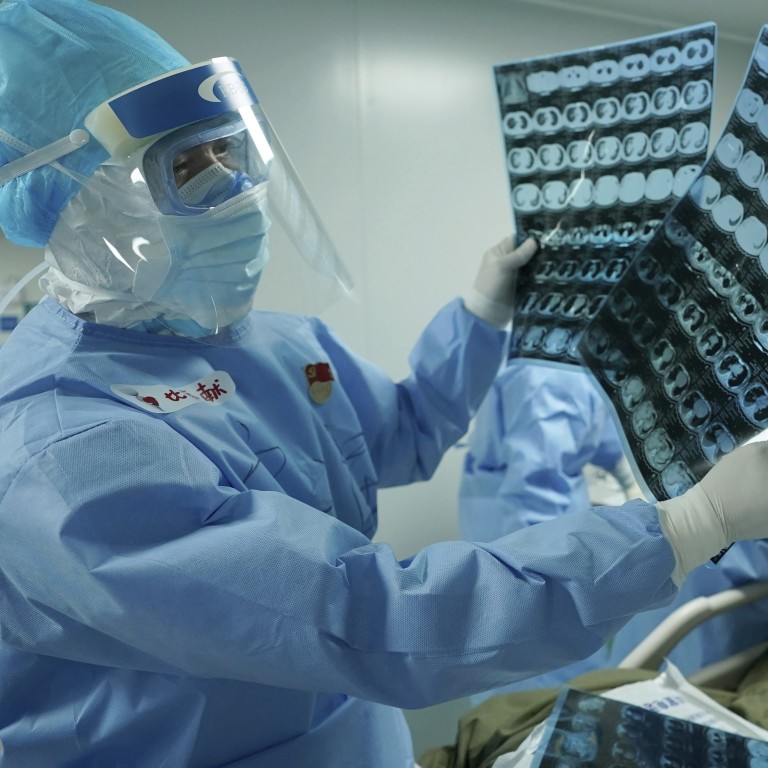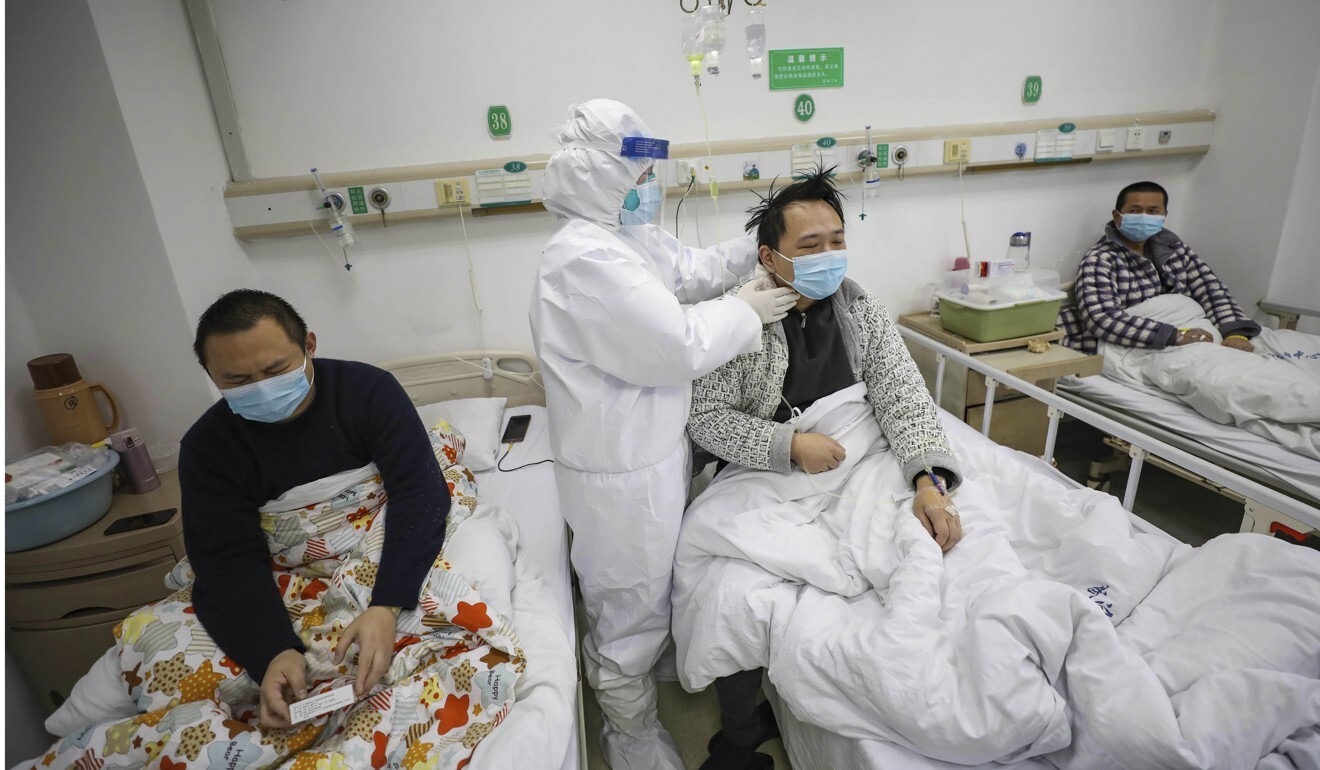
US coronavirus study says suppressing body’s initial immune response may help in fight against Covid-19
- ‘A short regimen of a proper immunosuppressant drug applied early in the disease process may improve a patient’s outcome,’ paper’s co-author says
- But immunologist says move would be ‘very dangerous because you’re crippling your body’s ability’ to clear the infection
“Based on the results of the mathematical modelling, we proposed a counterintuitive idea that a short regimen of a proper immunosuppressant drug applied early in the disease process may improve a patient’s outcome,” said Sean Du, a researcher from the University of Southern California and co-author of the paper.
“With the right suppressive agent, we may be able to delay the adaptive immune response and prevent it from interfering with the innate immune response, which enables faster elimination of the virus and the infected cells.”
The way in which the human immune system responds to invasive pathogens can be divided into two types: innate and adaptive. The former is non-specific and activated quickly to attack foreign cells in the body as soon as they are detected. The adaptive response starts days later if the bug is still detected and is specific to the particular type of pathogen.
Coronavirus immunity: how can we develop it and how long might it last?
The flu is a fast-moving disease. Its typical incubation time is 48 hours or less and infection usually resolves in three to five days. The influenza virus attacks cells on the surface of the upper respiratory system – known as epithelial cells – with sialic acid receptors and kills almost all of them within two to three days, the paper said.
Once the epithelial cells are gone, the influenza virus has nothing to attack, which gives the innate immune response time to clear the body of almost all of the virus before the adaptive system is activated, the researchers said.
The new coronavirus acts more slowly. Its average incubation period is six days and the time from symptom onset to discharge from hospital is about 22 days, the paper said.

The analysis suggested the adaptive immune response may kick in for Covid-19 patients before the target cells were depleted, slowing down the infection and interfering with the innate immune response.
“The danger is, as the infection keeps going on, it will mobilise the whole of the adaptive immune response with its multiple layers,” said Weiming Yuan, an associate professor from the University of Southern California and co-author of the paper.
“This longer duration of viral activity may lead to an overreaction of the immune system, called a cytokine storm, which kills healthy cells, causing tissue damage.”
Covid-19 may attack immune system like HIV, doctors fear
The study may also explain why some Covid-19 patients experienced two waves of the infection, appearing to get better before getting much sicker, Du said.
“Some Covid-19 patients may experience a resurgence of the disease after an apparent easing of symptoms,” he said.
“It’s possible that the combined effect of the adaptive and the innate immune responses may reduce the virus to a low level temporarily. However, if the virus is not completely cleared, and the target cells regenerate, the virus can take hold again and reach another peak,” he said.
Ashley St. John, an immunologist at Duke-NUS Medical School, Singapore, said the research needed further investigation, and in any case, a more targeted treatment approach would be preferable.
“Suppressing the adaptive immune system is a very drastic step. It can be very dangerous because you’re crippling your body’s ability to clear that last bit of infection,” she said.
“It’d be nice if we can find something more specific, that is causing the pathology, which tipped the balance into severe disease rather than targeting the whole adaptive immune system.”
Du said that at this stage the study was only a theory without experimental confirmation, but he and his colleagues were “relatively comfortable” with the conclusions, and that animal trials would be a good way to test the theory.
“A good drug candidate ideally should have a short decay time in the body, so after the drug is removed, the body’s immune responses can still come back to finish off the job of clearing out the virus,” he said.

